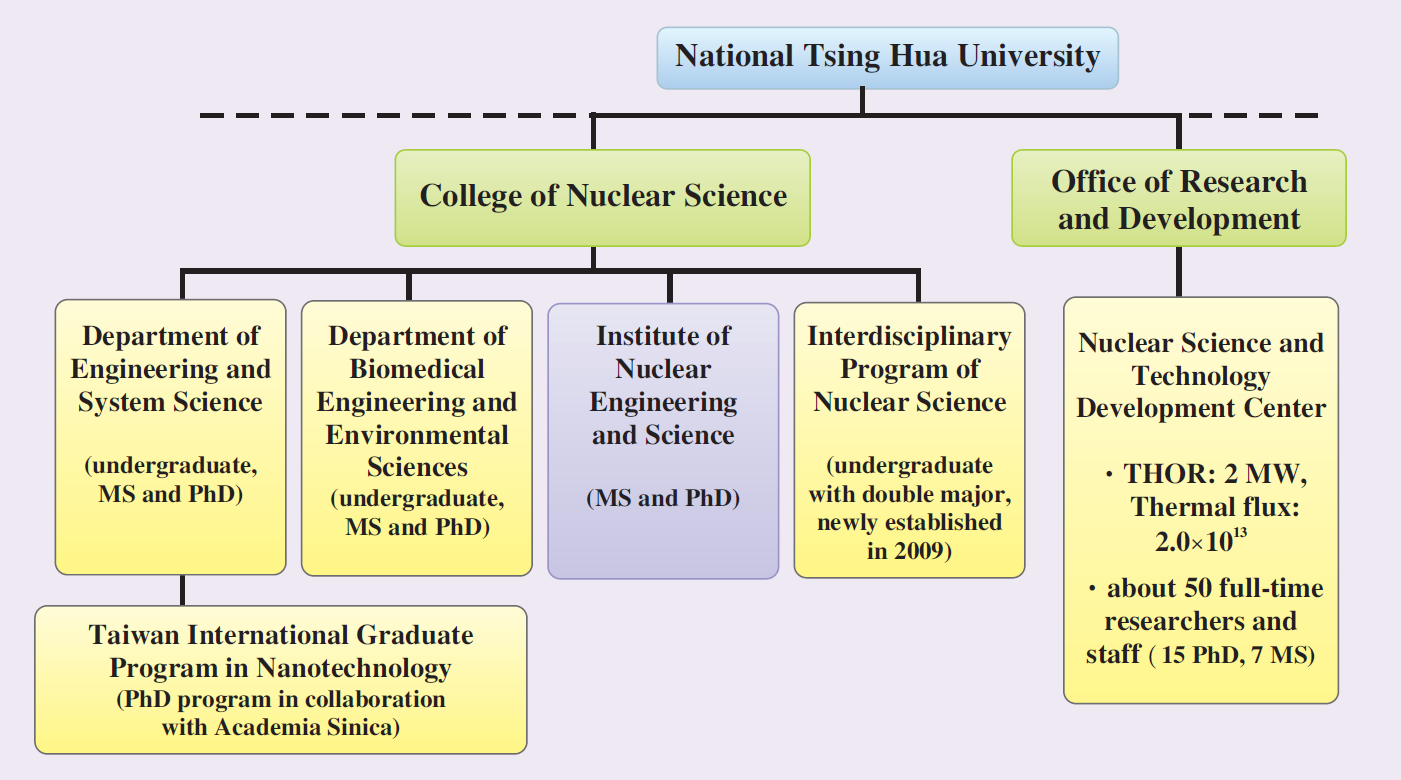Introduction
The Institute of Nuclear Engineering and Science at National Tsing Hua University was reestablished in 2007 to undertake the duty of teaching the young generation to become professional nuclear engineers and scientists. The Institute has 25 full-time professors. The faculty in the Institute have various professional specialties in nuclear engineering and science, and can provide complete and good-quality education in nuclear engineering.
Due to the impacts of energy shortage and global warming, every country in the world is facing the pressure of reducing the emission of greenhouse gases. Therefore, nuclear power will play a very important role in the coming twenty to thirty years before economical renewable energies become available. However, nuclear engineering and science has gone through a low status for the past twenty years, resulting in a shortage of the successors in this field. The Institute was reestablished in time to prevent the situation from getting worse. Besides training young generations, it will also take part in providing correct nuclear energy related information to the decision makers, and publicizing the common knowledge of nuclear energy.
The curricula are subdivided into the following areas: (1)reactor physics and engineering; (2)reactor safety and heat transfer; (3)nuclear materials; (4)radiation shielding and applications; (5)plasma nuclear fusion engineering; (6)nuclear instruments and control; and (7)nuclear science.
Research development is consistent with these course categories and is especially focused on nuclear power plant engineering and nuclear science and radiation applications.
The Institute provides a variety of courses related to nuclear science and engineering and attracts many well qualified students. Faculty teaching and research are highly regarded by the students.

Due to the impacts of energy shortage and global warming, every country in the world is facing the pressure of reducing the emission of greenhouse gases. Therefore, nuclear power will play a very important role in the coming twenty to thirty years before economical renewable energies become available. However, nuclear engineering and science has gone through a low status for the past twenty years, resulting in a shortage of the successors in this field. The Institute was reestablished in time to prevent the situation from getting worse. Besides training young generations, it will also take part in providing correct nuclear energy related information to the decision makers, and publicizing the common knowledge of nuclear energy.
The curricula are subdivided into the following areas: (1)reactor physics and engineering; (2)reactor safety and heat transfer; (3)nuclear materials; (4)radiation shielding and applications; (5)plasma nuclear fusion engineering; (6)nuclear instruments and control; and (7)nuclear science.
Research development is consistent with these course categories and is especially focused on nuclear power plant engineering and nuclear science and radiation applications.
The Institute provides a variety of courses related to nuclear science and engineering and attracts many well qualified students. Faculty teaching and research are highly regarded by the students.

